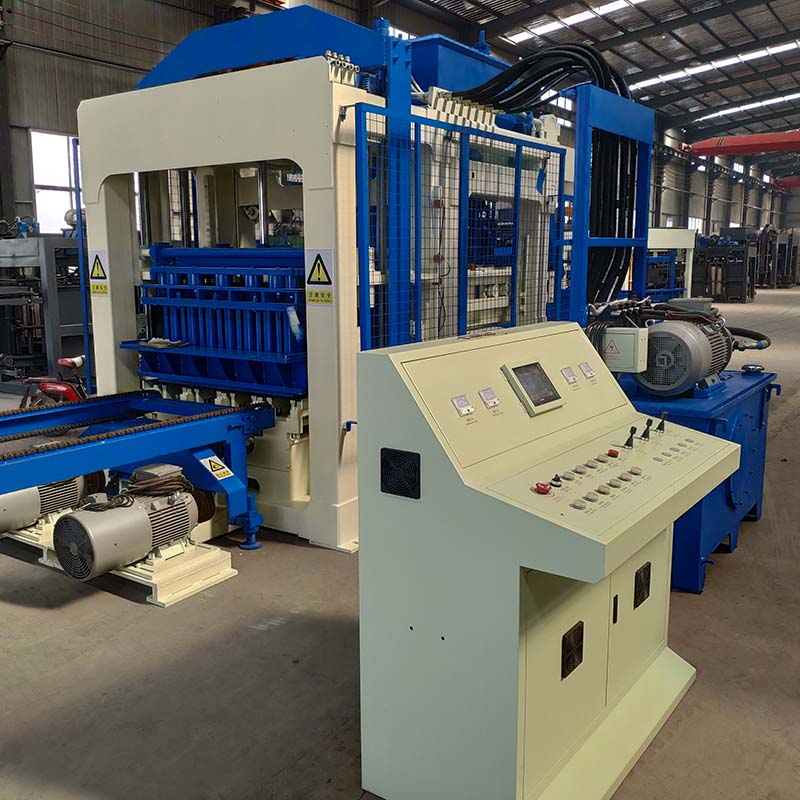
Image source:Aiwei block machine
Introduction
The manufacturing of brick machines holds significant potential for economic growth and sustainable development in African economies. These machines play a pivotal role in addressing housing shortages, creating employment opportunities, and fostering innovation in construction practices. However, the successful development of the brick machine manufacturing sector heavily relies on supportive government policies. In this article, we delve into the crucial role of government policies in promoting brick machine manufacturing across African economies and the resulting socio-economic benefits.
1. The Significance of Brick Machine Manufacturing in Africa
Affordable Housing: African nations face a substantial shortage of affordable housing. Brick machines can help address this issue by producing cost-effective building materials.
Job Creation: The brick machine manufacturing sector has the potential to generate employment, particularly in countries with high youth unemployment rates.
Innovation and Sustainability: Government-supported brick machine manufacturing can encourage innovation, such as eco-friendly materials and energy-efficient kiln technologies, contributing to sustainable construction practices.
2. Policy Frameworks for Promoting Brick Machine Manufacturing
Industrial Policy Development: Governments can formulate comprehensive industrial policies that specifically target the brick machine manufacturing sector. These policies should outline strategies for growth, innovation, and competitiveness.
Financial Incentives: Providing financial incentives such as tax breaks, subsidies, or low-interest loans to brick machine manufacturers can stimulate investment and expansion.
Research and Development (R&D) Support: Encouraging R&D activities in brick machine manufacturing can lead to technological advancements and product innovation.
Trade and Export Promotion: Governments can facilitate international trade and export opportunities for locally manufactured brick machines, boosting the sector’s global competitiveness.
3. Case Studies: Countries Promoting Brick Machine Manufacturing
South Africa: The National Industrial Policy Framework
South Africa’s National Industrial Policy Framework includes support for the machinery and equipment sector, which encompasses brick machine manufacturing. This support includes incentives for research and development, export promotion, and skills development.
Nigeria: The Nigerian Industrial Revolution Plan
Nigeria’s Industrial Revolution Plan identifies the machinery and equipment sector as a priority. The plan aims to develop local capacity in machinery manufacturing, including brick machines, through investment incentives and skill development programs.
Kenya: Affordable Housing Initiative
Kenya’s Affordable Housing Initiative places a strong emphasis on local manufacturing of construction materials, including bricks produced by brick machines. Government policies encourage partnerships between brick machine manufacturers and affordable housing developers.
4. Challenges and Solutions
Importation of Used Machines: The importation of used brick machines can undermine local manufacturing efforts. Governments can impose restrictions or taxes on the importation of used machines to protect local industries.
Skills Gap: A lack of skilled labor in the brick machine manufacturing sector is a common challenge. Governments can invest in vocational training programs to bridge this gap.
Infrastructure Development: The availability of reliable infrastructure, including electricity and transport, is crucial for the growth of the manufacturing sector. Governments should invest in infrastructure development to support the sector’s expansion.
Market Access: Brick machine manufacturers often face challenges accessing both domestic and international markets. Governments can provide market access support, including trade agreements and export promotion initiatives.
5. Socio-Economic Benefits
Job Creation: A thriving brick machine manufacturing sector can create jobs along the entire value chain, from machine production to brickmaking and construction.
Affordable Housing: The local production of brick machines can contribute to the availability of affordable housing materials, reducing housing costs for citizens.
Skills Development: Government policies that promote the sector often include initiatives for skills development, equipping the workforce with valuable technical skills.
Economic Growth: A vibrant brick machine manufacturing sector can boost economic growth through increased production, export revenue, and investment.
Conclusion: Government Policies as Catalysts for Growth
Government policies play a crucial role in promoting the growth of brick machine manufacturing in African economies. By providing a supportive framework, financial incentives, and opportunities for research and development, governments can foster innovation, job creation, and affordable housing solutions. As African nations continue to urbanize and address their housing challenges, the brick machine manufacturing sector holds immense promise for sustainable and inclusive development, ultimately contributing to the socio-economic well-being of the continent.
